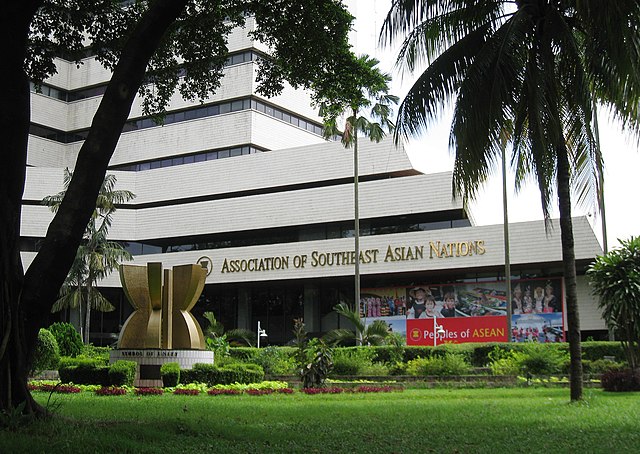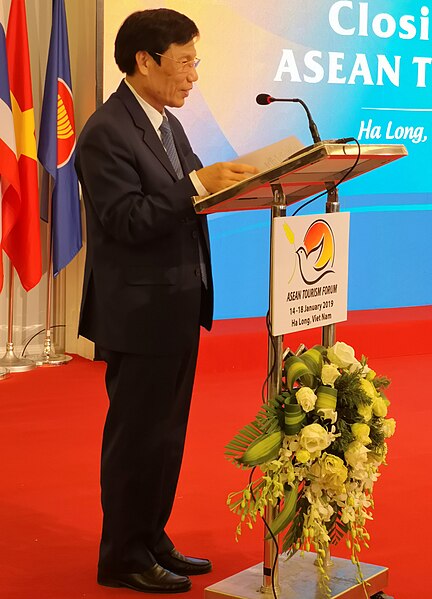ASEAN Agreement on Transboundary Haze Pollution
The ASEAN Agreement on Transboundary Haze Pollution is a legally binding environmental agreement signed in 2002 by the member states of the Association of Southeast Asian Nations to reduce haze pollution in Southeast Asia. The Agreement recognises that transboundary haze pollution which results from land and/or forest fires should be mitigated through concerted national efforts and international co-operation.
The business district of Kuala Lumpur in the evening of 29 September 2006. Menara Kuala Lumpur was barely visible.
Singapore's Downtown Core on 7 October 2006, when it was affected by forest fires in Sumatra, Indonesia
Satellite photograph of the 2006 haze above Borneo
Severe haze affecting Ampang, Kuala Lumpur, Malaysia, in August 2005
The Association of Southeast Asian Nations, commonly as ASEAN, is a political and economic union of 10 states in Southeast Asia. Together, its member states represent a population of over 600 million over a land area of 4.5 million km2 (1.7 million sq mi). The bloc generated a purchasing power parity (PPP) gross domestic product (GDP) of around US$10.2 trillion in 2022, constituting approximately 6.5% of global GDP (PPP). ASEAN member states include some of the fastest growing economies in the world.
ASEAN headquarters in Jakarta
ASEAN leaders sign the declaration of the ASEAN Economic Community during the 27th ASEAN Summit in Kuala Lumpur, 2015
ASEAN Tourism Forum 2019 - Traditional Vietnam woman cloth parade
Nguyễn Ngọc Thiện, Minister of Culture, Sports and Tourism of Vietnam at the ASEAN Tourism Awards 2019 in Ha Long Bay








